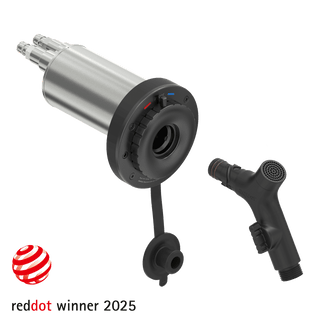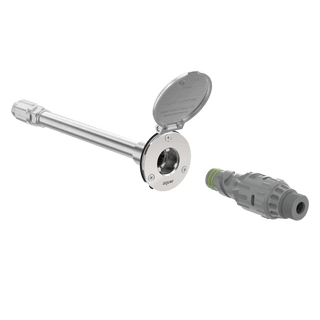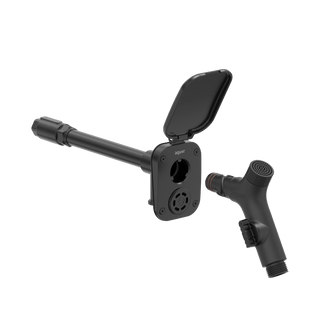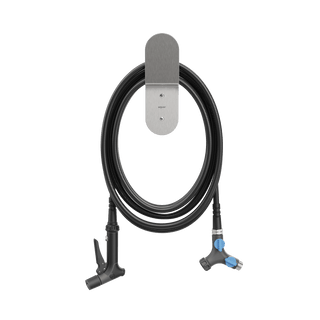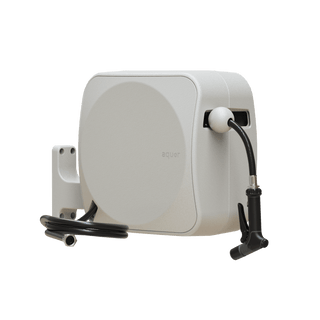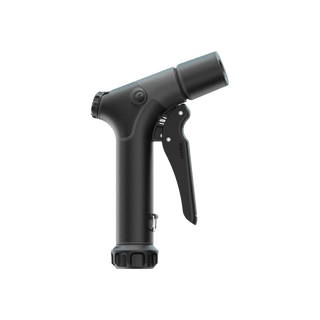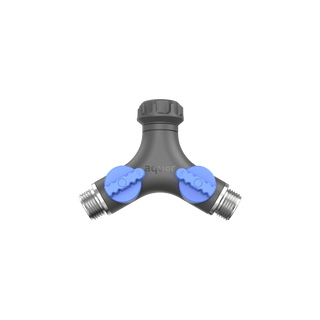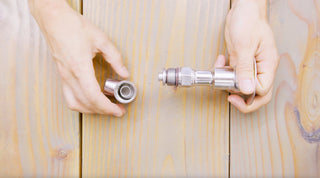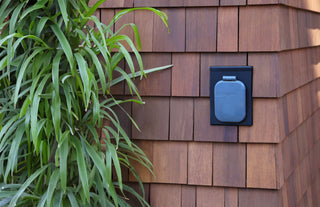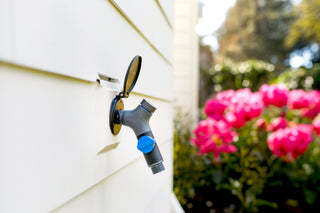Is Your Home’s Water Pressure Too High?

Enjoying a strong shower in the morning may sound like a plus for those with high water pressure but the resulting plumbing headaches down the road are not worth it. High water pressure puts enormous stress on your home’s internal piping and is classically the source of plumbing issues everyone deals with.
Why would I have high water pressure?
Homeowners have to be mindful that the city adjusts their water main pressure depending on your neighborhood. As communities grow and new infrastructure goes up, more people gain access to the same old piping systems, so it is inevitable for the pressure to drop with so many different outlets. Instead of spending money to re-plumb neighborhoods, the classic solution to this issue is to simply turn up the pressure at the water main that supplies that plumbing network. While this ensures that everyone has adequate pressure as a whole, it can result in uneven water pressures depending on each individual home’s distance from the main. This can lead to fluctuations in pressure based on neighborhood use, sudden increases in pressure, or a constant level of high or low water pressure.
Another possible cause of high pressure is the residual build up of pressure caused by the mechanical back flow prevention device that stops water already in your pipes from flowing into the city water system and possibly causing contamination. This standard device helps to keep your plumbing system from losing pressure and driving up your water bill, but when incoming or internal spikes of pressure occur they are trapped within your pipes. Over time, this can cause high water pressures and subsequent damage.
A common culprit of high water pressure is a faulty water pressure regulator, which is used to reduce the water pressure from the public water main so that it is compatible with household fixtures such as your outdoor faucet and kitchen sink. This is the first line of defense for any plumbing system and is installed downstream of your water meter. Sometimes, pressure regulators are installed as preventative insurance – rather than always lowering pressure to a normal level, they protect your home from sudden surges. In this case, you may not know that your regulator has failed until it’s too late.

How pressure affects plumbing & fixtures
All those leaks around the house may not be solely due to poor plumbing; even the best plumbing has trouble standing up to high pressure for extended periods of time. Too much water rolling through pipes causes shakes, rattles, and water hammering that is sure to keep you up at night.

This wear and tear extends to your appliances; made for standard pressure an unnatural load of pressure can lead to toilets, shower heads, washer machines, and even hot water heaters to break down years before they should. If your toilet makes that “post-flush sound” constantly than it may be leaking due to high water pressure. The toilet may not be able to stop such a buildup of water from pushing itself in, pouring into the bowl and wasting water straight down the drain without you even noticing.
Some appliance warranties are voided if high water pressure is the cause of damages which could leave you wading through expenses.
Other leaks could cause much more damage, seeping into walls and breaking down ceilings from undue stress on the joints throughout your plumbing. In extreme cases you could be the victim of exploding cold or hot water tanks from excess pressure build up. Small or large, dealing with the aftermath of a high pressure mess is costly and time-consuming.
How to reduce high water pressure
The good news about high water pressure is that it is relatively easy to fix! If you are already aware of significant pressure in your home you can have a licensed contractor install or repair your water pressure regulator. This will maintain a set level of incoming pressure, regardless of the PSI at your water main.

Even if you are currently not experiencing any problems it is important to keep an eye on what is flowing through your pipes. Testing your system with a water pressure gauge ($10 from a hardware store) will give you peace of mind and allow you to make money saving preemptive changes. Simply attach the gauge to a faucet closest to your water meter and slowly open up that faucet. To ensure an accurate reading you’ll need to make sure all other appliances (water machines, showers, refrigerators with ice makers) are off and closed.
Many local plumbing codes require that your pressure be between 40-80 PSI. If your pressure is higher or lower, then you’ll need to install, repair, or adjust your pressure regulator to comply. Adjusting your regulator is easy, as long as it’s working properly. Simply tighten the screw down clockwise to increase pressure and counter-clockwise to decrease pressure. Remember to make small adjustments at a time and continually check the pressure for accurate and safe results. For a comprehensive guide on installing and adjusting your pressure regulator, see this helpful guide by our friends at This Old House.
When designing the Aquor House Hydrant, we were mindful of the problems everyone faces with high water pressure. By using stainless steel and a double O-ring system we made sure that high water pressure would not result in leaks. Rather than causing it to gradually fail, high water pressure actually causes the House Hydrant to seal tighter. This is due to its patented valve design, that is closed via water flow rather than a screw, gate, or ball valve. Regardless of the fixture you use, it is important to treat your home like your own body and regularly perform checkups to make sure that your plumbing is holding up. Going years without looking into your pipes might cost you a pretty penny in damages later on. Checking your water pressure every now and then will help keep your home dry and safe!

